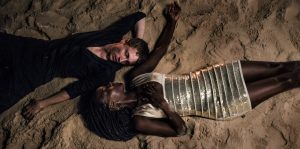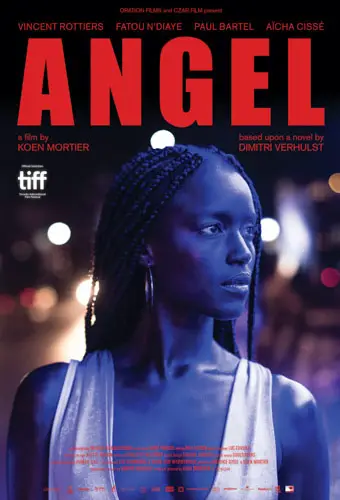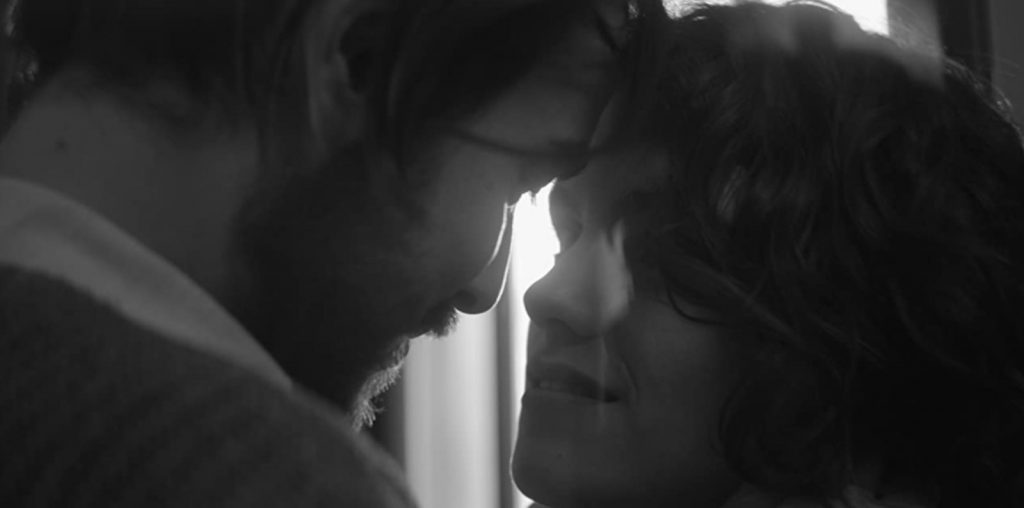
Koen Mortier’s Angel (Un Ange) finds a small romantic oasis in the torrents of life. Thierry (Vincent Rottiers) is a world-class cyclist from Belgium. Unfortunately, during a televised race, he falls over an embankment and seriously injures himself. After months of rehab, Thierry and his brother, Serge (Paul Bartel), heads to Senegal for one last soiree before Thierry returns to his rigorous training regimen.
Then there is Fae (Fatou N’Diaye), an unregistered sex worker, missing the valid health card she needs to work legally. As fate would have it, Fae and Thierry happen to be in the same nightclub, and the two fall in love. Thierry is so smitten with Fae that he proposes marriage at the night’s end. He even offers to take her to his palatial home in Belgium once they wed.
Of course, there are complications. Thierry is about to be thrown off the Belgian cycling team for drug abuse. He also suffers from severe depression, accompanied by constant visions of suicide. On the other hand, Fae is penniless, and the only thing she has of value or can sell is her body. She is at the mercy of her pimp — who may or may not have set up this coincidental encounter with Thierry.
“The two fall madly in love, and at this moment, their world is perfect together.”
Angel is about a moment in a single night between Thierry and Fae. The two fall madly in love, and at this moment, their world is perfect together. They believe that their love will change their lives for the better… until it doesn’t. The relationship takes a downward turn when Fae is not allowed in Thierry’s hotel room because she is a hooker without a valid health card.
Angel is a tragic story of two lost souls holding on to a brief moment of happiness in their lives. Mortier’s story works because of the contrasts of the two protagonists’ lives. Their love transcends class and culture and goes right into the basic human need of being loved. For Thierry, love gives him the strength to weather hardship. For Fae, love becomes a real connection with another person. One not reduced to a sexual encounter.
The writer/director masterfully builds sympathy for two relatively unknown actors to American audiences and makes us believe they genuinely love one another, albeit with the rosiest of rose-colored glasses. It’s not just life and circumstances that keep our couple apart, but it’s both their low-self image and how they cling on to a dream held by the loosest of threads.
As film lovers, as people, we always want to root for a happy ending. But tragedy is an equally valid genre of film—just ask Shakespeare. Angel evokes just the right amount of emotion to justify a place in our hearts for tragic storytelling.

"…tragedy is [a perfectly] valid genre of film—just ask Shakespeare."


